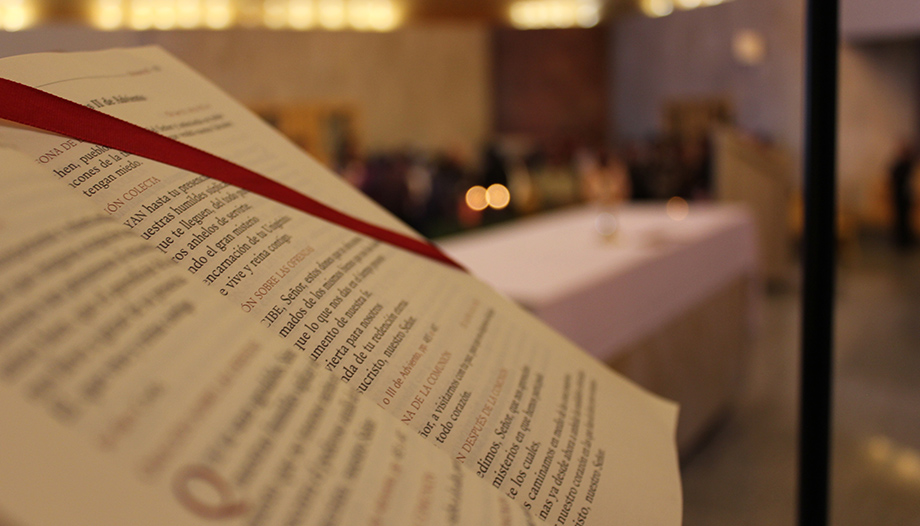Saints Peter and Paul are especially united by their martyrdom in Rome. Both gave their lives for Christ in this city and the Church of Rome is considered to be founded on their blood. "O Roma felix, quae tantorum principum es purpurata pretioso sanguine", sings a liturgical hymn: "O happy Rome, reddened by the precious blood of such great chiefs."
The Church celebrates today the death of these great apostles; in human terms, their failure. In fact, the first two readings of our Mass today focus on the apostles' weakness rather than their strength.
The first reading shows Peter imprisoned, held by King Herod with the intention of beheading him. But in his imprisonment and chains, expressions of his weakness, God acts to save him, sending an angel who leads him out of captivity by passing, we are told, "two guard posts one after the other".
Then he takes him back to the city, leaving him to find his own way to a Christian community, the house of Mary, mother of St. Mark, where everyone had been praying for him.
However, a few decades later, Nero would do what Herod could not accomplish: he would not only behead the apostle, but crucify him.
What is striking is the effort with which the Gospels seem to show the weakness of St. Peter. How could they be forgeries when they deliberately show the first Pope in such a poor light? A man who often makes mistakes, who has great insight into Christ, but who is then called "Satan" by him, and who denies the Lord three times at the moment when Christ needs him. This is the Pope. And even after the Resurrection he will still need public correction by St. Paul (see Gal 2:11-14).
The second reading shows St. Paul in his weakness: "For I am about to be poured out in libation and the time of my departure is imminent.". He is no longer the dynamic and energetic apostle, but an old man in chains awaiting death. In both Peter and Paul we see weakness turned into strength.
St. Paul was right when he wrote: "For when I am weak, then I am strong" (2 Cor 12:10).
The "strength" of the Church is not based on human power. Rather, it is strong when its members realize their weakness and let God act through them. As today's Gospel teaches us, Peter was right about Christ's divine status not because of "flesh and blood," that is, not because of his own powers of observation, but because the heavenly Father revealed it to him.
The feast of Saints Peter and Paul teaches us where to find strength: not in ourselves or in visible structures, but in God, who acts through the weak when they are humble.








